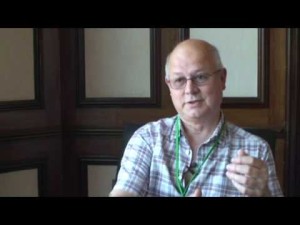Maurice Cottrell
Gilbert, Adrian
 Adrian Gilbert (1949- ) is the well-respected author of a number of books[326] and television documentaries on what are considered ‘fringe’ subjects. He is probably best known for The Mayan Prophecies[0327] co-authored with Maurice Cotterell as well as The Orion Mystery co-authored with Robert Bauval. He has also studied connections between the Bible and astrology[0328].
Adrian Gilbert (1949- ) is the well-respected author of a number of books[326] and television documentaries on what are considered ‘fringe’ subjects. He is probably best known for The Mayan Prophecies[0327] co-authored with Maurice Cotterell as well as The Orion Mystery co-authored with Robert Bauval. He has also studied connections between the Bible and astrology[0328].
Influenced by the ‘prophecies’ of Edgar Cayce he believes that Atlantis, or at least part of it, had existed in the West Indies near Bimini and that following its final inundation around 10,500 BC he claims that refugees fled to the Yucatan Peninsula where they developed the Mayan civilisation.
>In The Mayan Prophecies, Gilbert and Cottrell, in an attempt to justify their claim that Plato was referring to an American Atlantis, have offered a flawed translation of Timaeus 24-25 [p166], using the word ‘ocean’ where the Greek text uses the words ‘pontos’ or ‘pelagos’ which both mean sea not ocean. The first English translation of Plato’s text by Thomas Taylor correctly used the word sea for ‘pontos’ and ‘pelagos’, including the term ‘Atlantic Sea’.
For the Greeks the word ‘ocean’ (okeanos) only referred to the huge sea that flowed around the known world.
Leaving all that aside we should note that Herodotus, who flourished after Solon and before Plato, was quite clear that there were only three continents known to the Greeks; Europe, Asia and Libya(b) in fact, prior to Herodotus only two land masses were considered continents, Europe and Asia, with Libya sometimes considered part of Asia. So when Plato does use the word ‘continent’ (Tim. 24e-25a, Crit. 111a) we can reasonably conclude that he was referring to one of these land masses, and more than likely to either Europe or Libya (North Africa) as Atlantis was to the west of Athens and Egypt, ruling out Asia.<
Gilbert’s principal interest is the Mayan calendar and the fact that it will reset to zero at midnight on the 21st of December 2012. This coincides with the earlier views of the American archaeologist, Michael D. Coe, who wrote about the significance of 2012 as early as 1966 in his book, The Maya. However, he has suggested three different dates between Dec. 24 2011 and Jan 11 2013 in various editions of his book(a).
It is claimed that this date will coincide with catastrophic events that occur cyclically every 5,000 years. Many authors, such as Patrick Geryl have speculated on the nature of the calamities that this date may bring.
(a) https://rationalwiki.org/wiki/2012_apocalypse
(b) The Histories, Book 4. v.42 *
